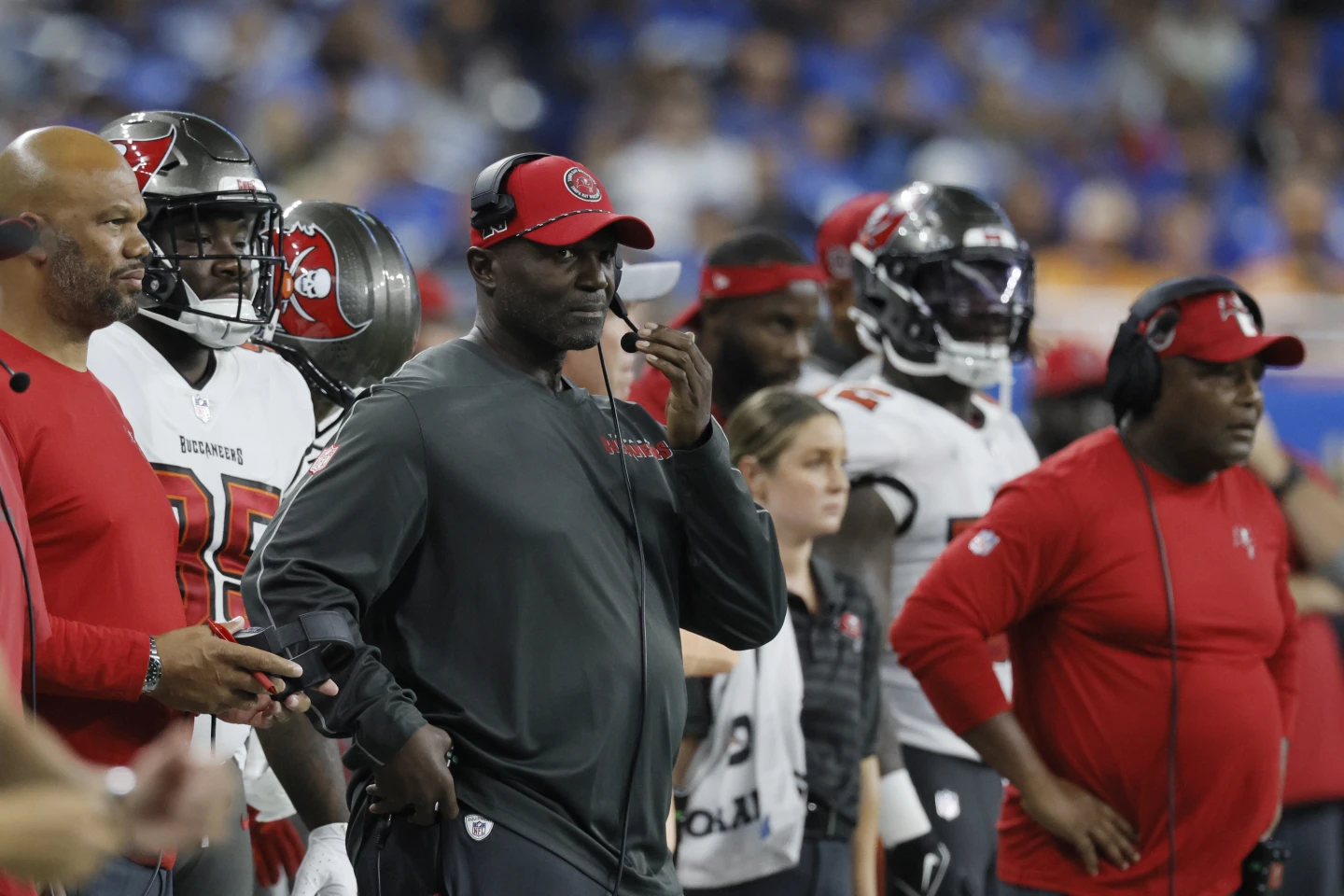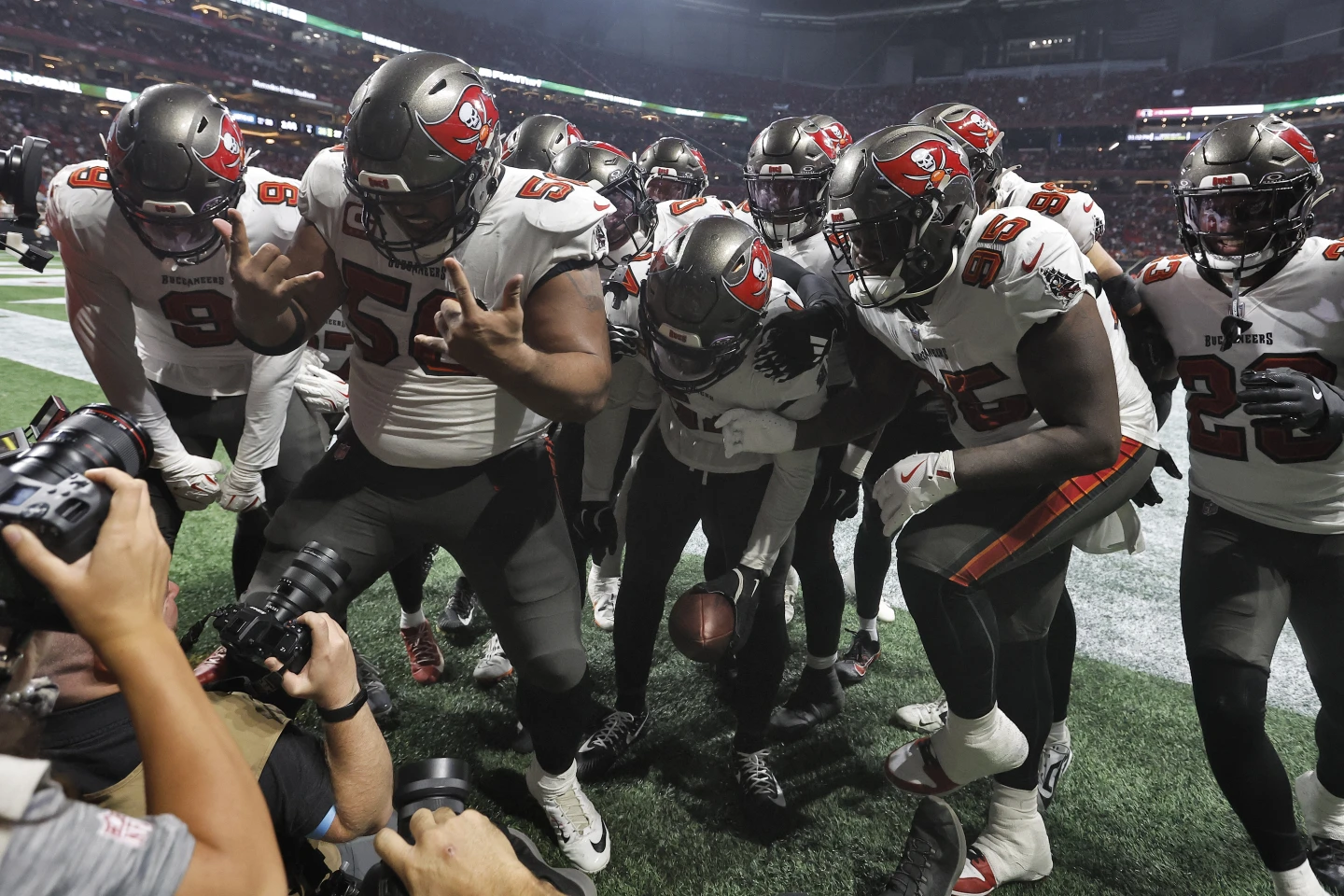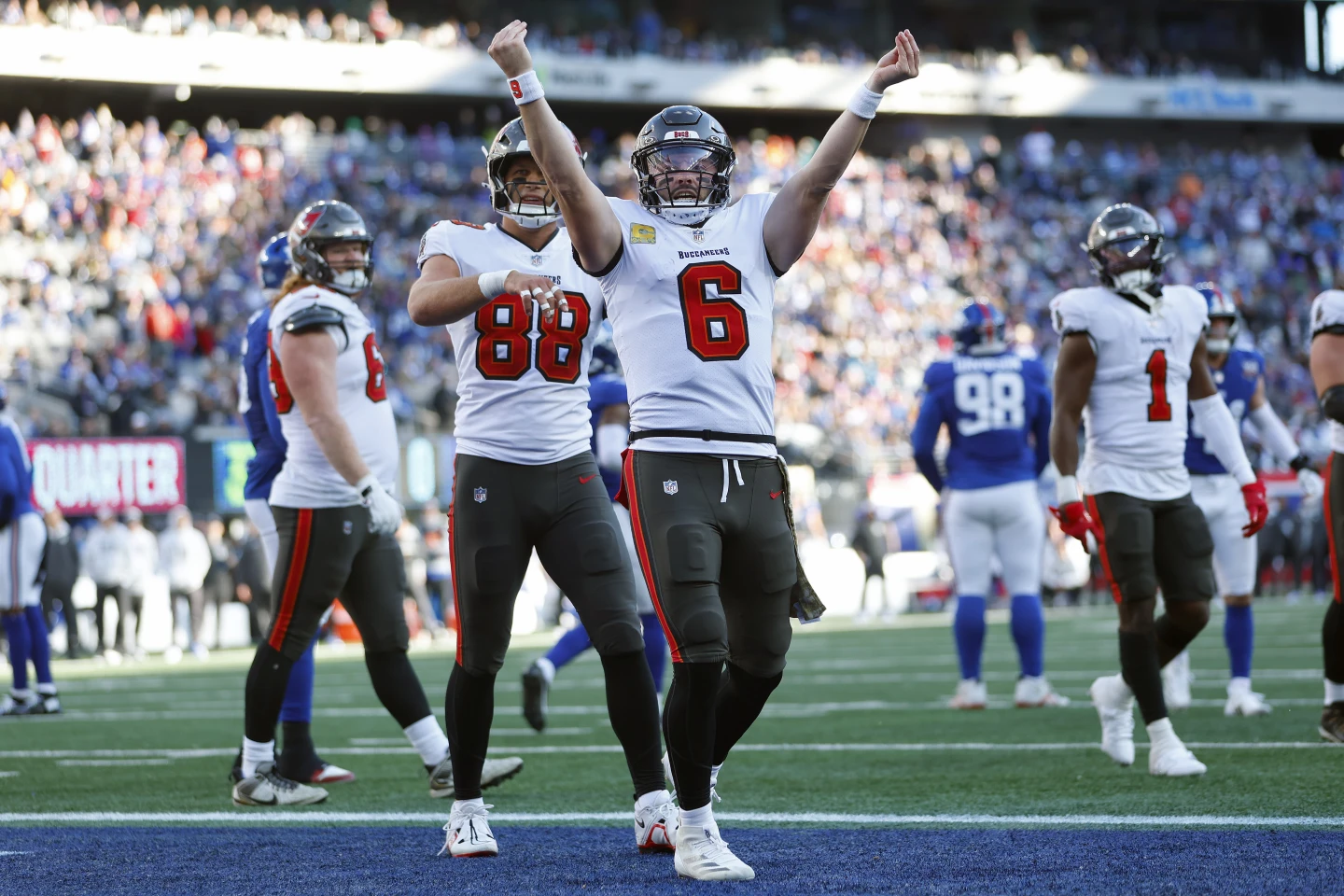Todd Bowles is a smart and creative defensive coach. His players seem to enjoy playing for him. After winning a Super Bowl with the Bucs as Bruce Arians’ defensive coordinator, Bowles has led Tampa Bay to three consecutive division titles in the NFC South. Any coach who wins three division titles in three years is clearly doing well.
However, I wish Bowles would manage his timeouts more effectively. He seems to have a good grasp of most difficult aspects of coaching, but timeout management, which should be one of the simplest tasks, doesn’t appear to be one of them. The Bucs mismanaged the clock in the final two minutes of both halves during their narrow loss to the Commanders on Sunday.
The first mistake didn’t hurt them much. After Baker Mayfield completed a 20-yard pass to Mike Evans to put the Bucs in the red zone, it seemed clear that one of their two remaining timeouts would be used.
But instead, Mayfield quickly prepared to run another play, and Bowles called a timeout from the sideline. This indecision caused them to lose 10 seconds off the clock and allowed the Commanders a chance to regroup and adjust their defense.
Luckily for the Bucs, Evans drew a pass interference penalty on the next play and caught a touchdown on the following one. This mistake happened because Bowles seemed afraid to use his timeouts, thinking he might need them later.
By waiting until 10 seconds had passed, they missed at least one offensive play. Using a timeout there would have made sense since that was a moment when the team needed one. Not using the second timeout was a clear mistake.

A similar issue occurred on the defensive side later in the game. After Austin Ekeler caught a pass for 18 yards to put the Commanders in field goal range, the play ended with 1:53 left. Bowles allowed another 12 seconds to run off the clock before calling his first timeout. There’s no reason for that delay.
He should have used his timeouts to give his team a chance to stop the clock and get the ball back. If the Commanders ran the clock down and scored, Tampa Bay’s season would likely have been over. Letting those 12 seconds slip away was a big mistake.
This mistake almost cost them. With 55 seconds left, on a third-and-2, Calijah Kancey almost stopped Jayden Daniels for a loss, which would have forced Washington to kick a field goal and give the Bucs another chance. Those 12 missing seconds could have been crucial. Instead, Kancey missed the tackle, Daniels ran for a first down, and the Commanders kicked a field goal with three seconds left to win.
The Bucs’ issues with timeouts aren’t just isolated to this game. In Week 17, Falcons coach Raheem Morris also made a mistake with timeout management. After a 25-yard completion to Darnell Mooney, the Falcons didn’t use their second timeout, allowing the clock to run down to 17 seconds before an incomplete pass.
They used the second timeout during a dead ball situation, but after a pass interference penalty, Riley Patterson missed a 56-yard field goal that would have won the game. The Falcons ended up losing in overtime.
Morris didn’t have a good explanation for his decision until the next day, when he said calling a timeout would have given Washington’s coach Dan Quinn a chance to set up a more complicated defensive play for rookie quarterback Michael Penix Jr. While that may be true, it doesn’t justify his choice.
Not using the timeouts cost the Falcons the chance to run at least two more plays, and those extra plays might have gained more yards than one play against a simpler defense.

And unfortunately for Bowles, this isn’t a new issue. Earlier this season, down by seven with 33 seconds left against the Chiefs, Bowles called a timeout after a 19-yard pass put the Bucs in first-and-goal. This stopped the clock and forced Tampa Bay to pass from there on out. Though Mayfield threw a touchdown pass two plays later, the stopped clock gave Kansas City time to drive for a potential game-winner at the end of regulation.
In 2022, with the Bucs leading 17-10 and the Browns facing a fourth-and-9 from the 13-yard line with 1:12 left, Bowles didn’t call a timeout to stop the clock. A timeout would have let the Bucs set their defense and possibly get a chance to score if the Browns made the fourth-down conversion. Instead, 30 seconds ran off the clock. When Tampa Bay got the ball back, they ran out of time, and the Browns won in overtime.
Were the timeouts the main reason the Bucs lost? No. There were other mistakes, like Mayfield fumbling and the Commanders converting a fourth-down pass to Terry McLaurin for a go-ahead touchdown.
On the next drive, the Bucs had an early snap issue, which led to a busted play. In a position to win with a touchdown, Tampa Bay ended up kicking a field goal to tie the game at 20. Their offense never got another chance.
Coaches can’t always control things like covering McLaurin, tackling Daniels, or preventing fumbles. Those things happen. But managing timeouts? That should be straightforward.
